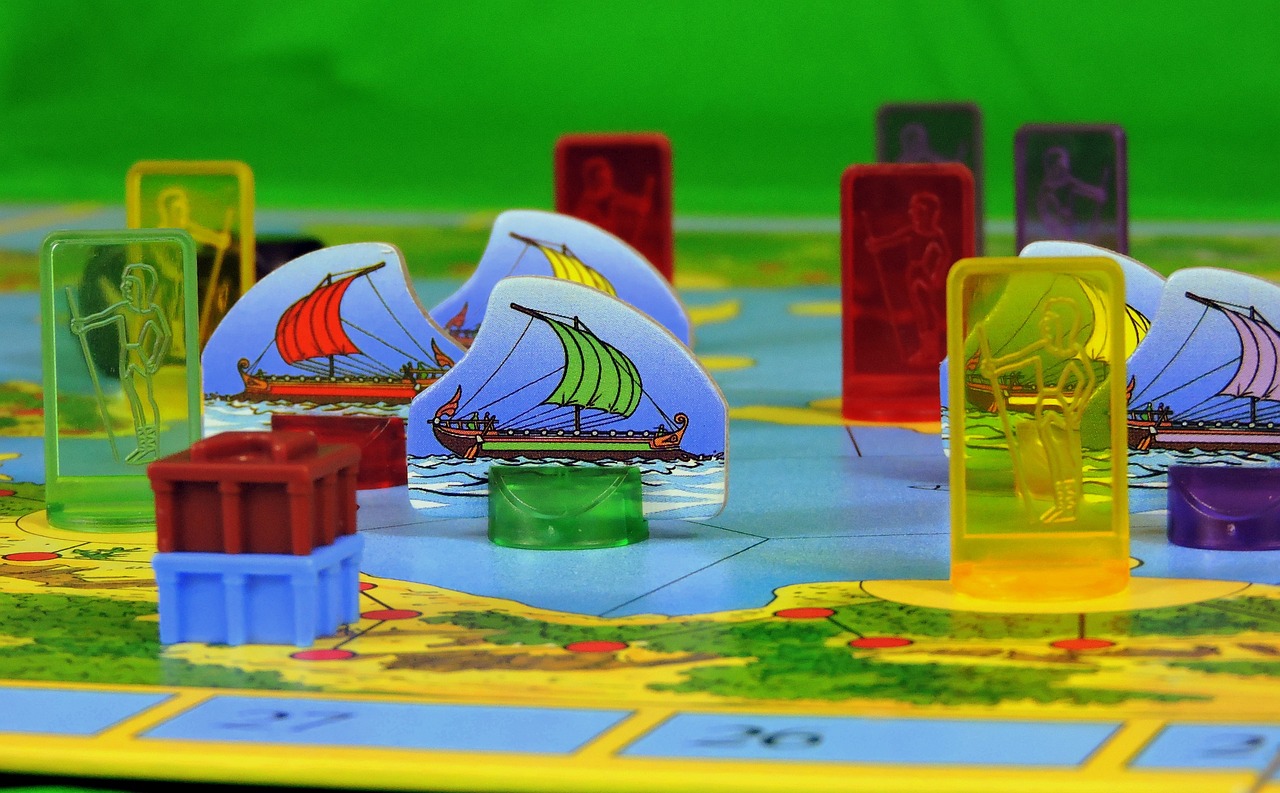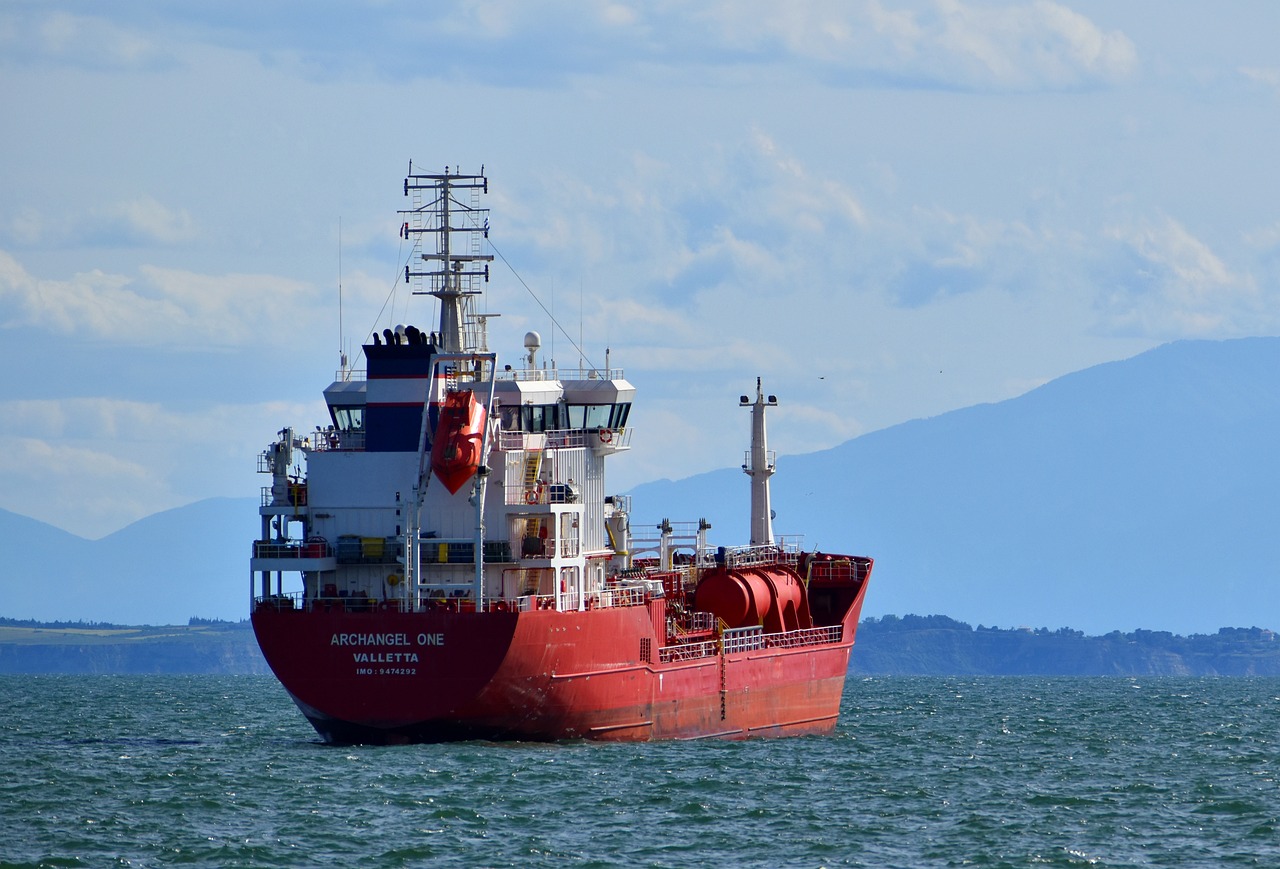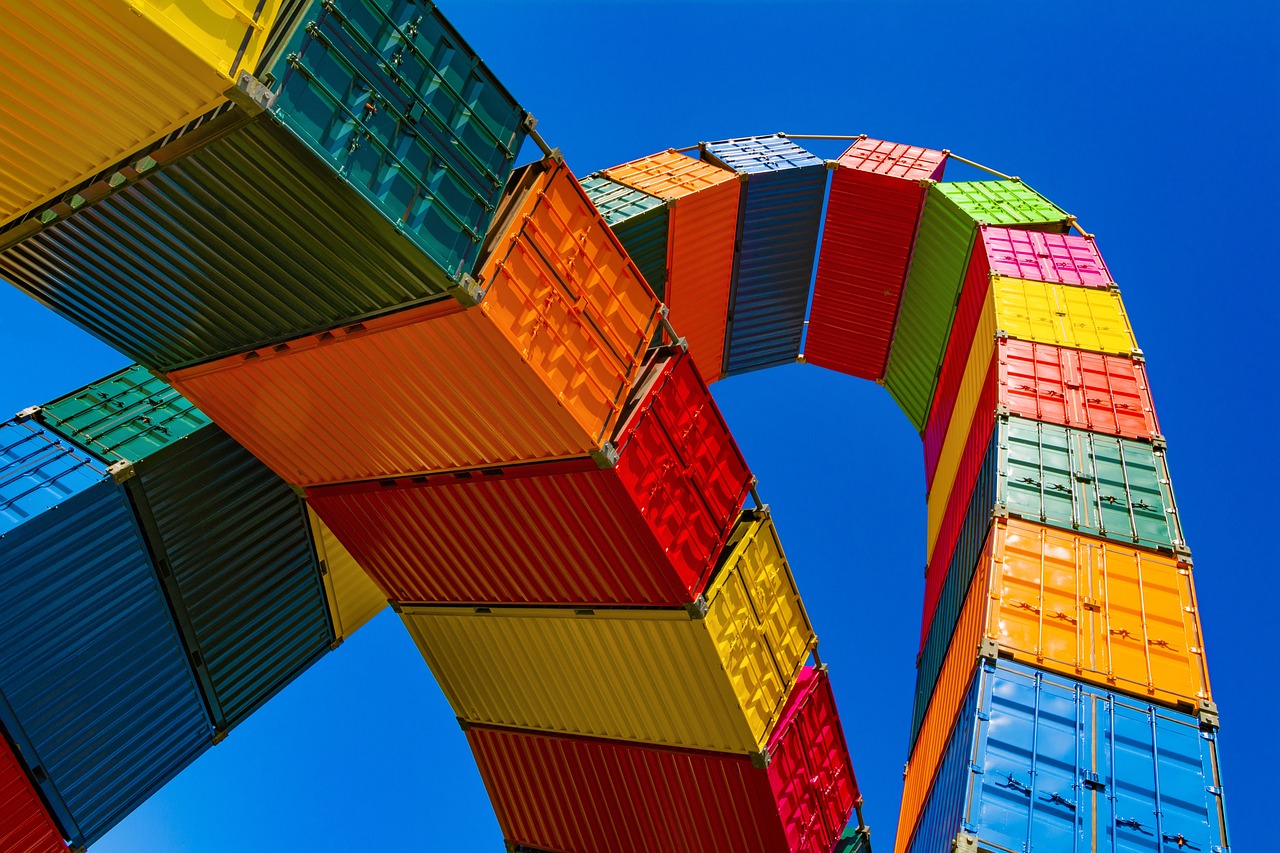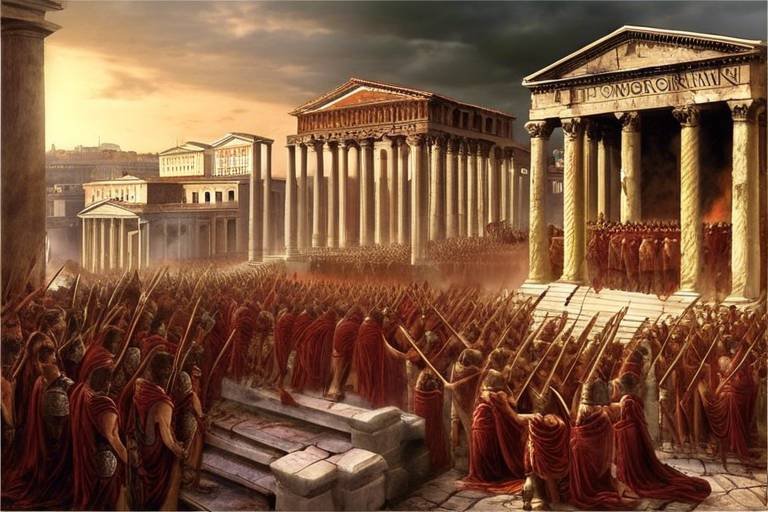The Role of Trade in the Development of Civilizations
Trade has played a pivotal role in shaping the growth and prosperity of civilizations throughout history. From the ancient Silk Road connecting the East and West to the modern global markets that span the entire globe, trade has been a driving force behind cultural exchange, economic development, and technological advancement.
Early trade routes such as the Silk Road and Trans-Saharan trade were instrumental in facilitating the exchange of goods, ideas, and cultures between distant regions. These routes acted as bridges connecting different civilizations, sparking innovation and fostering cooperation.
Maritime trade expansion further accelerated the exchange of goods and knowledge, with routes like the Mediterranean Sea and Indian Ocean serving as bustling hubs of commercial activity. The seas became highways of commerce, linking diverse societies and fueling economic growth.
The Age of Exploration in the 15th and 16th centuries ushered in a new era of trade as European explorers discovered new lands and established trade routes to distant shores. This period of exploration not only opened up new markets but also led to the globalization of trade networks, connecting previously isolated civilizations.
Colonial trade systems shaped by European powers had a profound impact on global trade, with the exploitation of resources in the Americas, Africa, and Asia fueling the rise of mercantilism. The flow of goods and wealth between colonies and mother countries reshaped economies and societies.
The Industrial Revolution marked a significant turning point in trade history, revolutionizing manufacturing, mass production, and transportation. The emergence of global markets transformed trade dynamics, leading to increased specialization and economic interdependence.
Modern trade agreements like NAFTA and the EU have further reshaped the global economic landscape, fostering cooperation between nations and promoting economic growth. These agreements have opened up new opportunities for trade while also raising questions about sovereignty and economic integration.
Technology has played a crucial role in revolutionizing trade practices in the 21st century. The internet and digital platforms have enabled businesses to connect and transact on a global scale, breaking down barriers and streamlining trade processes.
As we move towards a more sustainable future, the importance of adopting sustainable trade practices cannot be overstated. Promoting economic development while preserving the environment and supporting local communities is essential for ensuring the long-term viability of global trade.

Early Trade Routes
Exploring how trade has shaped the growth and prosperity of civilizations throughout history, from the ancient Silk Road to modern global markets.
Investigating the impact of trade routes like the Silk Road and Trans-Saharan trade on the exchange of goods, ideas, and cultures.
Early trade routes played a crucial role in connecting distant civilizations and fostering the exchange of valuable commodities, knowledge, and cultural practices. The Silk Road, spanning from China to the Mediterranean, facilitated the trade of silk, spices, and other goods, creating a network that transcended borders and brought diverse societies together. Similarly, the Trans-Saharan trade route linked North Africa to West Africa, enabling the exchange of salt, gold, and slaves, shaping the economic landscape of the region.
These ancient trade routes not only facilitated commerce but also served as conduits for the transmission of ideas, religions, and technologies. The Silk Road, for instance, not only carried goods but also spread Buddhism, Islam, and other beliefs, contributing to the cultural enrichment of societies along its path. The interconnectedness fostered by these routes laid the foundation for the globalization of trade and the diffusion of civilizations.
Moreover, the development of early trade routes sparked innovations in transportation and infrastructure, leading to the establishment of thriving market cities and trading posts. Merchants and traders from different regions converged at bustling marketplaces, creating vibrant hubs of economic activity where goods from distant lands were bartered and sold. These exchanges not only fueled economic growth but also facilitated the cross-cultural exchange of languages, customs, and traditions, enriching the tapestry of human civilization.
Through the exploration of early trade routes like the Silk Road and Trans-Saharan trade, we gain insight into the interconnected nature of civilizations and the profound impact of trade on shaping the development and prosperity of societies across the globe.
1. What role did trade routes play in the exchange of goods and ideas between civilizations?
2. How did early trade routes like the Silk Road contribute to the cultural enrichment of societies?
3. What innovations were spurred by the development of ancient trade routes?

Maritime Trade Expansion
Maritime Trade Expansion played a crucial role in connecting distant civilizations and fostering the exchange of goods, knowledge, and cultures. The vast expanses of the Mediterranean Sea and the Indian Ocean served as highways of commerce, enabling merchants to navigate between continents and establish lucrative trade networks. Ships laden with exotic spices, precious metals, and textiles sailed across these maritime routes, linking the shores of Europe, Africa, Asia, and the Middle East.
One of the most significant maritime trade routes was the Mediterranean Sea, which facilitated trade between ancient civilizations such as the Greeks, Romans, Egyptians, and Phoenicians. The Mediterranean region became a melting pot of cultures, where ideas and technologies were exchanged, leading to advancements in navigation, shipbuilding, and trade practices.
Similarly, the Indian Ocean trade network connected the coastal regions of Africa, the Middle East, India, Southeast Asia, and China. Merchants from diverse cultures converged in bustling ports like Calicut, Malacca, and Zanzibar, trading goods such as silk, spices, ivory, and precious stones. This maritime trade expansion not only enriched the economies of participating civilizations but also fostered cultural exchange and the spread of ideas.
The development of maritime trade routes was not without challenges, as merchants had to navigate treacherous waters, unpredictable weather conditions, and the threat of piracy. However, the potential profits and opportunities for cultural exchange outweighed the risks, leading to the flourishing of maritime trade during ancient and medieval times.

The Age of Exploration
The Age of Exploration marked a period of significant discovery and expansion as European explorers set sail to uncover new lands and establish trade routes. This era, spanning the 15th and 16th centuries, was characterized by bold voyages across uncharted waters in search of wealth, power, and knowledge. Explorers such as Christopher Columbus, Vasco da Gama, and Ferdinand Magellan embarked on daring expeditions that reshaped the world map and transformed the dynamics of global trade.
During this time, advancements in navigation, shipbuilding, and cartography enabled explorers to venture further than ever before, reaching distant lands in Asia, Africa, and the Americas. The discovery of new trade routes, such as the sea route to India pioneered by Vasco da Gama, revolutionized commerce and sparked intense competition among European powers vying for control of lucrative trade networks.
The Age of Exploration not only facilitated the exchange of goods, spices, and precious metals but also introduced European technology, ideas, and culture to previously isolated civilizations. This period of exploration laid the foundation for the interconnected world we live in today, as trade routes established during this time continue to influence global commerce and cultural exchange.

Colonial Trade Systems
During the era of colonialism, trade systems played a pivotal role in the expansion of empires and the exploitation of resources across continents. Colonial powers such as Spain, Portugal, Britain, and France established intricate networks of trade routes to extract wealth from their colonies in the Americas, Africa, and Asia. These trade systems were designed to benefit the colonizers economically, often at the expense of indigenous populations and local economies.
Colonial trade systems were characterized by the forced extraction of raw materials from colonies to be shipped back to the home country for processing and profit. This mercantilist approach to trade focused on maximizing exports and accumulating wealth, leading to the impoverishment of colonial territories and the enrichment of European powers.
The establishment of trading posts, forts, and colonies along strategic routes enabled colonial powers to control the flow of goods and maintain dominance over trade networks. The exploitation of resources such as precious metals, spices, and agricultural products fueled the economic growth of European nations while perpetuating inequality and dependency in colonized regions.
Moreover, the introduction of cash crops and plantation economies in colonies transformed local agricultural practices and disrupted traditional trade patterns. Slavery and forced labor were widespread in colonial trade systems, further exacerbating the exploitation of indigenous peoples and contributing to the dehumanization of labor for economic gain.
Despite the economic benefits accrued by colonial powers through their trade systems, the long-term consequences of exploitation and inequality have had lasting impacts on the development and stability of former colonies. The legacy of colonial trade systems continues to shape global economic relations and influence contemporary debates on trade justice and reparations for historical injustices.

Industrial Revolution and Trade
The Industrial Revolution marked a significant turning point in the history of trade, revolutionizing the way goods were produced and exchanged. With the advent of mechanization and the shift from agrarian economies to industrialized societies, trade took on a new dimension. Factories sprung up, powered by steam engines and later electricity, enabling mass production on a scale never seen before. This led to the creation of a global market where goods could be manufactured efficiently and transported across vast distances.
One of the key impacts of the Industrial Revolution on trade was the emergence of new trade routes and the expansion of existing ones. With the development of steamships and railways, goods could be transported faster and in larger quantities. This facilitated trade between distant regions and enabled the exchange of raw materials, finished products, and ideas on a global scale.
The Industrial Revolution also brought about significant social and economic changes that influenced trade dynamics. The rise of urban centers and the growth of a middle class created new consumer markets, driving demand for a wide range of goods. This led to the specialization of industries and the development of supply chains that spanned continents, further fueling international trade.
Moreover, the Industrial Revolution laid the foundation for modern trade practices, such as standardization, mass marketing, and branding. Companies began to establish global networks of production and distribution, setting the stage for the interconnected world of commerce we see today. The rapid technological advancements of the era, from the telegraph to the assembly line, revolutionized the way trade was conducted and paved the way for the modern economy.

Modern Trade Agreements
Modern trade agreements, such as NAFTA and the EU, play a crucial role in shaping the landscape of international trade. These agreements are designed to promote economic growth, facilitate the movement of goods and services across borders, and strengthen political relationships between countries. By eliminating trade barriers and tariffs, modern trade agreements aim to create a more efficient and competitive global marketplace.
One of the key benefits of modern trade agreements is the boost they provide to economic growth. By opening up markets and encouraging trade between countries, these agreements create opportunities for businesses to expand their reach and increase their profits. Additionally, modern trade agreements can lead to job creation and higher living standards for the populations involved.
Moreover, modern trade agreements help to foster stronger political relationships between countries. By promoting cooperation and mutual benefits through trade, these agreements can contribute to peace and stability in the international arena. Countries that engage in trade agreements are more likely to resolve conflicts through dialogue and negotiation, rather than resorting to aggressive measures.
Furthermore, modern trade agreements promote transparency and fairness in trade practices. By establishing clear rules and regulations for trade, these agreements ensure that all parties involved operate on a level playing field. This helps to prevent unfair competition and protect the interests of both businesses and consumers.
In conclusion, modern trade agreements are essential tools for promoting economic growth, fostering political relationships, and ensuring fair and transparent trade practices on a global scale. By facilitating the flow of goods and services between countries, these agreements contribute to the development and prosperity of civilizations in the modern era.

Technology and Trade
Exploring how trade has shaped the growth and prosperity of civilizations throughout history, from the ancient Silk Road to modern global markets.
Investigating the impact of trade routes like the Silk Road and Trans-Saharan trade on the exchange of goods, ideas, and cultures.
Examining how maritime trade routes such as the Mediterranean Sea and Indian Ocean facilitated the spread of goods and knowledge between civilizations.
Discussing how European exploration in the 15th and 16th centuries opened up new trade routes and led to the globalization of trade networks.
Analyzing the role of colonial powers in shaping global trade systems and the exploitation of resources in the Americas, Africa, and Asia.
Exploring how the Industrial Revolution transformed trade with the rise of manufacturing, mass production, and the development of global markets.
Evaluating the impact of modern trade agreements like NAFTA and the EU on international trade, economic growth, and political relationships.
The fusion of technology and trade has revolutionized the way business is conducted in the 21st century. With the advent of the internet and digital platforms, companies can now reach global markets with a click of a button. This seamless connectivity has transformed traditional trade practices, making transactions faster, more efficient, and accessible to a wider audience.
Highlighting the importance of sustainable trade practices in promoting economic development while preserving the environment and supporting local communities.
Stay tuned for answers to common questions about the role of trade in civilization development!

Sustainable Trade Practices
When it comes to sustainable trade practices, it's all about finding a balance between economic growth and environmental responsibility. Imagine trade as a delicate dance where every step taken should be mindful of its impact on the planet and society. By promoting sustainable trade practices, we aim to create a harmonious relationship between commerce and conservation, ensuring that future generations can also benefit from the resources our planet has to offer.
One key aspect of sustainable trade practices is fair trade, which focuses on ensuring that producers in developing countries receive fair wages and work in safe conditions. This not only benefits the workers directly involved but also contributes to the overall economic development of their communities. Fair trade agreements often involve certifications that guarantee ethical production practices, providing consumers with the assurance that their purchases support responsible businesses.
Another important consideration in sustainable trade is the concept of carbon footprint reduction. By minimizing the environmental impact of transportation and production processes, businesses can contribute to the fight against climate change. This can be achieved through initiatives such as using renewable energy sources, optimizing supply chains to reduce emissions, and investing in eco-friendly packaging solutions.
Furthermore, sustainable trade practices emphasize the preservation of biodiversity and natural resources. By promoting sustainable agriculture, forestry, and fishing practices, we can ensure that ecosystems remain healthy and resilient. This not only benefits the environment but also supports the livelihoods of communities dependent on these resources for their economic well-being.
Ultimately, sustainable trade practices are about creating a win-win situation where economic prosperity goes hand in hand with environmental stewardship. By embracing sustainability in trade, we can build a more resilient and equitable global economy that respects both people and the planet.
Frequently Asked Questions
- What is the significance of trade in the development of civilizations?
Trade has played a crucial role in the growth and prosperity of civilizations throughout history. It has facilitated the exchange of goods, ideas, and cultures, leading to economic development and cultural enrichment.
- How did early trade routes like the Silk Road impact civilizations?
Early trade routes like the Silk Road connected the East and West, enabling the exchange of goods such as silk, spices, and technology. These routes also facilitated cultural exchanges and the spread of knowledge.
- What role did maritime trade routes play in the development of civilizations?
Maritime trade routes, such as the Mediterranean Sea and the Indian Ocean, allowed for the transportation of goods over long distances, fostering trade between distant civilizations and promoting economic growth.
- How did the Age of Exploration impact global trade networks?
The Age of Exploration in the 15th and 16th centuries led to the discovery of new lands and trade routes, expanding global trade networks and connecting distant regions of the world.
- What is the significance of modern trade agreements in international trade?
Modern trade agreements like NAFTA and the EU have played a key role in promoting international trade, fostering economic growth, and strengthening political relationships between countries.
- How has technology revolutionized the way trade is conducted in the 21st century?
Technology, such as the internet and digital platforms, has transformed the way trade is conducted by enabling faster communication, efficient transactions, and global market access for businesses of all sizes.
- Why is sustainable trade important for economic development?
Sustainable trade practices are essential for promoting economic development while ensuring the preservation of the environment and supporting local communities. By adopting sustainable practices, countries can achieve long-term growth and prosperity.



















